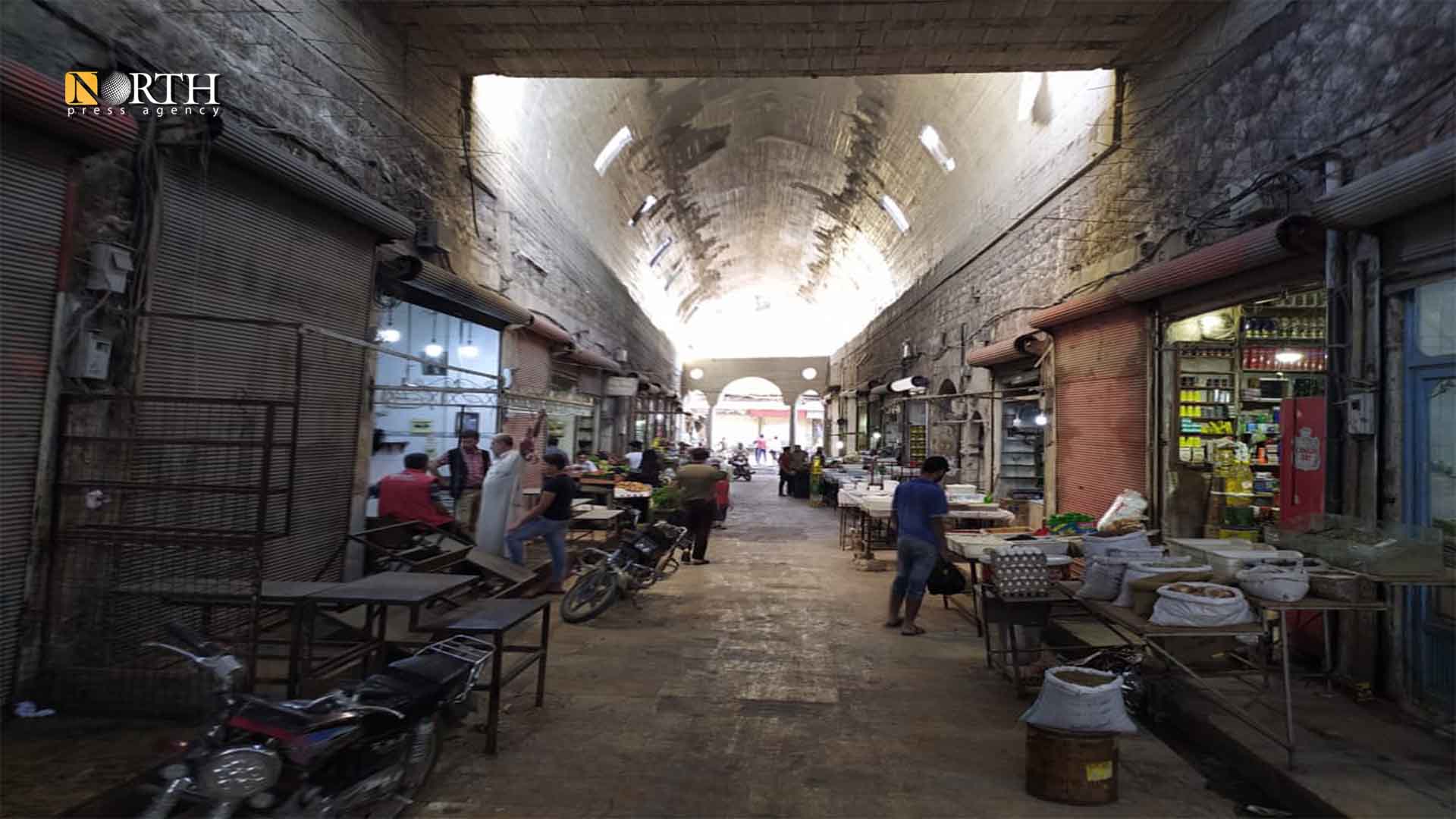Turkish lira has not eased hard living conditions: residents in Syria’s Aleppo
AZAZ, Syria (North Press) – Residents in Azaz and its countryside, north of Syria’s Aleppo, say that dealing with Turkish lira in the opposition-held areas has not protected them from the hard living conditions and the constant cost of basic food.
On Sunday, the Turkish Lira in Idlib was 7.54 against the US dollar, while the Turkish lira is 513 Syrian pounds, according to the Today Pound website.
Mohamed al-Saleh, a resident of the town of Sjjo in Azaz, said that 20 Turkish lira (equivalent to approximately 10,000 Syrian pounds) is no longer enough for one day.
Al-Saleh works as a porter loading goods from trucks to depots in Azaz, to support his six-child family.
“The appreciation of the Turkish lira against the US dollar in the past period has not changed the price of basic needs,” he added.
“On the contrary, the price of some vegetables such as tomatoes and cucumbers purchased from greenhouses in nearby rural areas or coming from Turkey has risen.”
Over the past few weeks, greenhouse projects have been damaged by weather conditions, leading to plant damage in some of them, according to residents of the countryside of Azaz.
In June 2020, the Syrian Interim and Salvation Governments decided to adopt Turkish currency instead of the Syrian pound.
Since the first months of the Turkish lira in the regions of northwest Syria, the decision has had negative consequences, particularly for workers and low-income people who bear exchange rate fluctuations.
Safia al-Darani (a pseudonym) who lives in Azaz, believes that the “traders’ monopoly” is the main reason for the high price of food, whether vegetables or food supplies.
The majority of traders store food and even vegetables in special refrigerators, resulting in a shortage of quantities in the market, and subsequently offer them to shopkeepers at high prices.
Al-Dirani noted the lack of oversight of the local council’s supply committees in Azaz, which is under the control of pro-Turkish groups.
Azaz and its countryside are home to approximately 100,000 residents and displaced people, most of whom are dependent on daily wages and seek food and basic needs in the city’s markets.
Trucks packed with vegetables, fruits and food staples continue to enter Azaz from Turkey through the Bab al-Salam crossing near the town of Sejjo, north of Aleppo.
Other agricultural land in Aleppo, which is under the control of the Syrian government, is out of traders’ reach.
Bader al-Din al-Yasin, a shopkeeper in Azaz, said that he buys his goods from wholesale shops in the city in the US dollar, but has to sell them to his customers in the currency they have, whether Turkish lira or Syrian pound.
“It has become difficult to calculate prices accurately, as I estimate my overall profit or loss on the US dollar,” he added.
Al-Yasin also indicated difficulties in dealing with customers “due to the lack of small denominations in the Syrian and Turkish currencies.”

